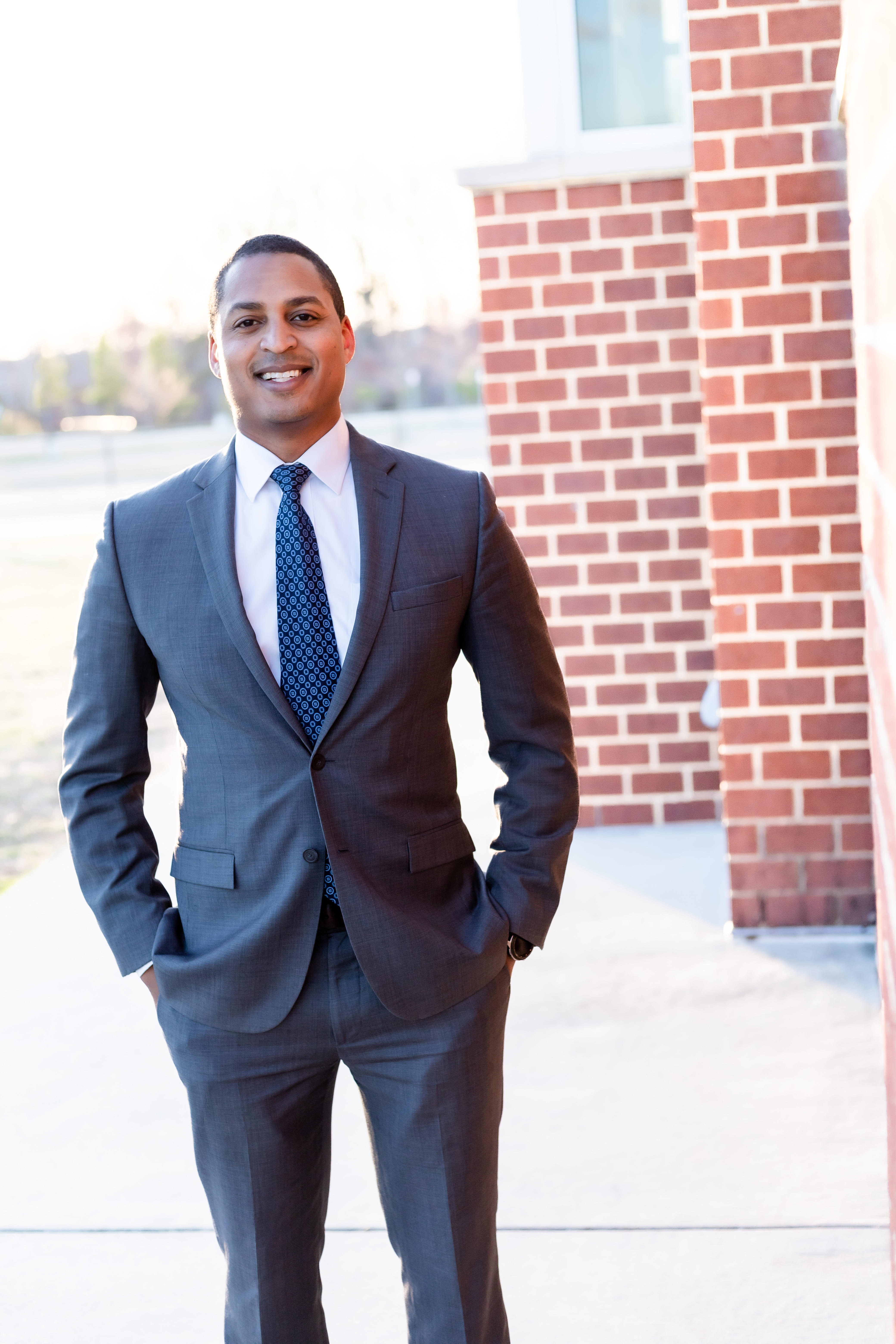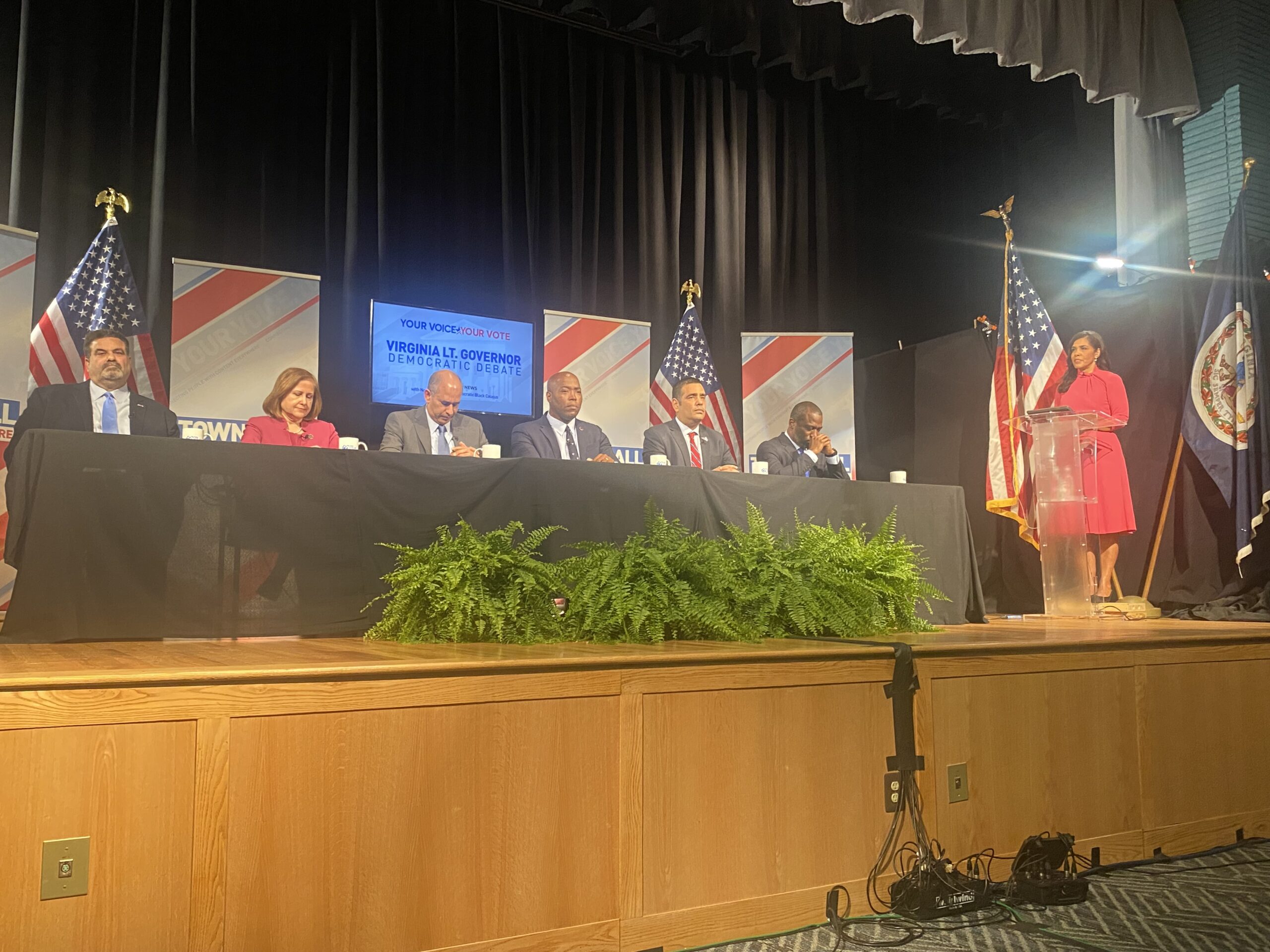Travis Nembhard is ready to lead District 22 as its Delegate
by John Reid
Preparing to take the next step into public office can be a daunting task. For Travis Nembhard, it was a task in which he’s well prepared.
Public service has been a foundation of his career, and the former administrative law judge turned attorney spoke with the PW Perspective about his campaign to become the delegate for District 22. He addressed the rising crime rates in Prince William County, according to a recent police report:
“As a husband and a father, nothing concerns me more than ensuring the safety of my family,” he said. “First and foremost, we need to provide support to our state and local police, ensuring that they have the funding they need to do their jobs. One of my primary focus areas is to obtain sufficient funding for what I call our critical public servants. Services such as educators, first responders, and medical professionals are very critical as well.”
“We need to help law enforcement to get the help they need. I also plan on partnering with law enforcement and the Board of County Supervisors to stay on top of any measures to make sure the funding is there. In December, the BOCS voted to increase officer pay, and building on that will help to recruit the officers they need.”
Nembhard also took the time to discuss how working with the community is essential to solving this issue. “Also, we need to establish community-based initiatives around early intervention and being proactive with high-risk individuals. That means keeping an open line with the Prince William County Police. It’s a complex issue, and that’s something many cities and counties deal with, but one of the core functions is getting the support they need.”
Education is a topic that is near to the Nembhard household, and helping teachers is one of his plans as delegate. “I am the husband of a public-school teacher, and learning from her experience, and talking with other teachers, there’s a high turnover rate. It’s not unique to Prince William County, it’s a national issue, but we can do our part to weather that proverbial storm.”
“One of the things I want to do is advocate the need for raising the average salary rate of our teachers and support staff. In 2020-2021, the average pay was $58,500, that’s $6500 below the national average, and we can do better. We need to show the teachers the support that they need.”
“We need to get general funding to our schools,” he continues,” and in many ways, I’m going to do my part as delegate to get support from the state level. There are also cursory issues that go beyond funding, like tackling gun safety. Not a day goes by where I don’t worry about my wife and two sons, and sadly school shootings increase across the country. We need to ensure that the gun safety measures are put into place and protecting the progress that we’ve made. Lastly, reducing some of the workload that we’ve been placing on our teachers, I do think that hiring more teachers and staff will go a long way towards doing some of that. We need to realize that they are human, and they’re not mental health professionals, and we can do our part in helping to provide the funding that will bring in mental health professionals.”
“A core idea of my campaign is working families and we have to lower the costs of living, and teachers fit squarely within that part. There’s so many teachers that we interact with on a daily basis, and so as we adopt more policies it will go a long way towards supporting the teacher workforce.”
One of the goals he believes will help families is partnering with businesses in dealing with the I-66 bottleneck. “Working in Washington DC, I have an integral idea of the traffic from Prince William County,” he said. “My daily commute is 1 and a half hours each way, and that’s about 2 and a half hours of total driving per day. It impacts my ability to help my wife get the kids ready for daycare, and many other families are dealing with the same issue. We need to think outside the box, because expanding roads is a finite issue, and charging higher toll amounts, that’s not going to cut it.”
“One preliminary idea that I have to implement a pilot program that incentivizes businesses to adopt a hybrid work schedule. Some do that already, but this program would give others the opportunity to dip their toes in the water, and we would work hand in hand to address any concerns they had about why they didn’t adopt it in the first place. If half of the companies did this, there would be less cars sitting on I-66. It will also improve productivity, reduce travel costs, and improve work-life flexibility. We want to find solutions that is beneficial to them and their employees.”

Living in the Bristow area, the challenge of affordable housing is foremost on his goals to resolve. “As a homeowner, affordable housing hits close to home, because I know how large of an expense it is. Interest rates are more than twice the levels of where they were over a year ago, and Virginians cannot afford the same housing they could years ago. Some of the steps I’m taking towards it are the tax credits for first-time home buyers, down payment assistance, creating incentives for homebuyers in sparsely populated areas.”
“The Virginia Gateway is a huge draw, just like the Mosaic District, and finding ways to create more community and business centers in areas that would meet the needs of the people.”
“Also, putting together a homestead deduction for taxpayers, which would reduce property assessed value, especially for senior citizens and those with disabilities. Lastly, I would implement programs such as universal pre-k. If you think about it, the average expense is $1200 per child in Northern Virginia, so the average family may be paying up to $3000 a month. If we offer universal child care, that removes that expense and allows them to use the money for other things like housing. That could go a long way to addressing that issue.”
In his distinguished career, he has been a civil rights advocate, championing causes for underserved communities. So, what is the one thing he’s most proud of?
“It’s when I first graduated law school,” he said. “When I graduated from Villanova law, I started working full-time as an assistant attorney general in the Civil Rights Bureau of the New York State Office of the Attorney General. I had the pleasure of working with my boss at the time, Kristen Clarke, who is now the head of President Biden’s Civil Rights Division. It meant a lot working with her, learning from her, working on issues that were important to me regarding civil rights issues.”
“However, there was one minor hiccup. It was through the volunteer attorney program, which gave me tremendous amounts of experience, and it was one of the best experiences I’ve had. But, it was unpaid, and so I worked full-time, Monday through Friday, with no compensation. To make that work, I had to move in with my parents on Long Island. I had to also commute for three hours daily into Manhattan, where our office was located. I had to find a job that fit that work schedule. As a new attorney, it was hard to find employers willing to fit my work schedule, so I had to work overnight at Dunkin Donuts. It was tough, but that experience gave me tremendous insight into what working families and low-wage workers deal with. I was barely making my expenses, and I can’t imagine what some families that are working with unlivable wages are making it work.”
“It was a humbling experience, and I will never forget it. It was something I was proud of doing, being able to work on 2 to 4 hours of sleep a day, and being able to give back to the community despite the challenges I had to face.”
For more information on Travis’ campaign, please visit his website.


